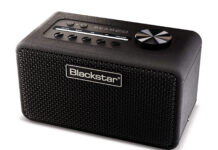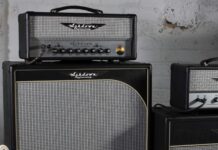
Scotland’s Kenny’s Music becomes the latest musical instrument retailer to close its doors, “despite our strongest sales ever in recent years”
Scottish musical instrument retailer Kenny’s Music has ceased trading, the firm confirms in a new communication with its supplier partners.
The company – which ran an online store, as well as brick-and-mortar stores in Glasgow, Aberdeen, Dunfermline and formerly Dundee – reveals its intention to move into Creditors’ Voluntary Liquidation (CVL), “despite our strongest sales ever in recent years”.
“The rapidly rising cost base across both stores and e-commerce, combined with continued pressure on margins, has made it impossible for us to operate sustainably within the traditional music retail model,” writes Alex Marten, Managing Director at Kenny’s Music. “Continuing to trade would not have been responsible.
“Although this chapter is ending, I remain committed to the MI industry and hope to contribute again in future in a way that better reflects the changing needs of musicians and suppliers alike. In the meantime, I will do everything I reasonably can to assist you and the proposed liquidator through this process.”
At the time of writing, the Kenny’s Music online store is offline, with a short message which reads: “Our online store is currently unavailable.”
Kenny’s Music is just the latest in a string of musical instrument retailer closures in recent years.
In the last five years alone, we’ve witnessed Guitar Center enter and exit Chapter 11 bankruptcy protection – which allows a struggling business a chance to reorganise their finances while continuing to operate – and legendary US music chain Sam Ash file for bankruptcy and close all its stores.
The picture in the UK hasn’t been pretty either: now Kenny’s Music, but this year also saw the closure of iconic Brighton-based retailer GAK, and the collapse of large UK chain PMT in summer.
Elsewhere, Bax Music – one of Europe’s largest online music retailers, with six physical stores across the Netherlands and Belgium – was declared bankrupt earlier this year after struggling with financial woes exacerbated by the Covid pandemic, and subsequently by a fire in 2023 which damaged a number of instruments at a facility in Goes in the southwestern Netherlands.
The industry doesn’t look healthy right now, especially looking only at these high-profile closures. But it’s not been all bad news.
Following the rapid spate of closures and the understandable crisis of confidence in customers, Andertons Music Co main man Lee Anderton reached out to us in June to offer his thoughts on the changing nature of the industry and how retailers can continue to thrive in a rapidly changing economic environment.
“We’ve been getting all sorts of comments coming through with orders saying, ‘Please confirm that you’ve definitely sent this today, because I’m a bit nervous that you’re gonna go bust tomorrow as well’,” Anderton revealed.
“So it’s really important, I think, that we put some balance back into the debate. Because the underlying guitar business is actually pretty resilient… you don’t have to worry about the good retailers.”
Anderton also touched on the devastating impact of the Covid pandemic on music retailers: “You just couldn’t have thrown a worse curveball, to a business with a large number of retail stores.
“And then I think, honestly, it’s never recovered. I think Covid accelerated customers’ propensity to shop online, and probably accelerated what was going to happen anyway over a 10- or 15-year period, into a two-year period.”
Anderton did acknowledge the difficulty brick-and-mortar stores have in competing with online retail: “If I add up the number of guitar amp and pedal products that you could order today on the Andertons website – I’m not even counting strings and cables, just guitars, amps and pedals – there are 14,000 different products. And 10,000 of them are in stock! How on earth is your average bricks and mortar store gonna get close to that? It’s financially not possible to have that kind of operation in every major city.”
Image: Press
But he said where physical stores will always have the edge over online retail is in providing a top-tier experience for in-person customers.
“I do still think that the greatest experience that you can have in retail is in an amazing bricks and mortar store,” he said. “Doesn’t matter what you want to buy, a really amazing store with amazing demonstration facilities, and a vibe, and a great sales person and great after-sales service… if that can happen, it’s amazing.
“But when in reality did you last experience that? It’s so hard to consistently achieve that experience. I certainly think that part of the reason Andertons has never opened a second store is that it’s hard enough trying to do it most of the time in one store, yeah, trying to do it most of the time let you know, let alone all the time in 15 stores.”
Andertons isn’t the only European music retailer continuing to thrive. Last year, we took a trip to Treppendorf, Germany to get an inside look at Thomann’s monumental operation.
The brand’s headquarters sits in a town populated by only a couple hundred people, but serves hundreds of thousands of customers daily; it operates out of Europe’s largest warehouse, with 120,000 square metres of floor space, and shipping over 100,000 items every single day.
So it’s safe to say there’s still a strong demand for musical instruments and gear. Perhaps what we’re seeing amid shifting customer habits and changes in economic conditions is a metaphorical shifting of MI retail’s tectonic plates, and far from an end of the MI retail world that some have feared.
The post Scotland’s Kenny’s Music becomes the latest musical instrument retailer to close its doors, “despite our strongest sales ever in recent years” appeared first on Guitar.com | All Things Guitar.
Source: www.guitar-bass.net










